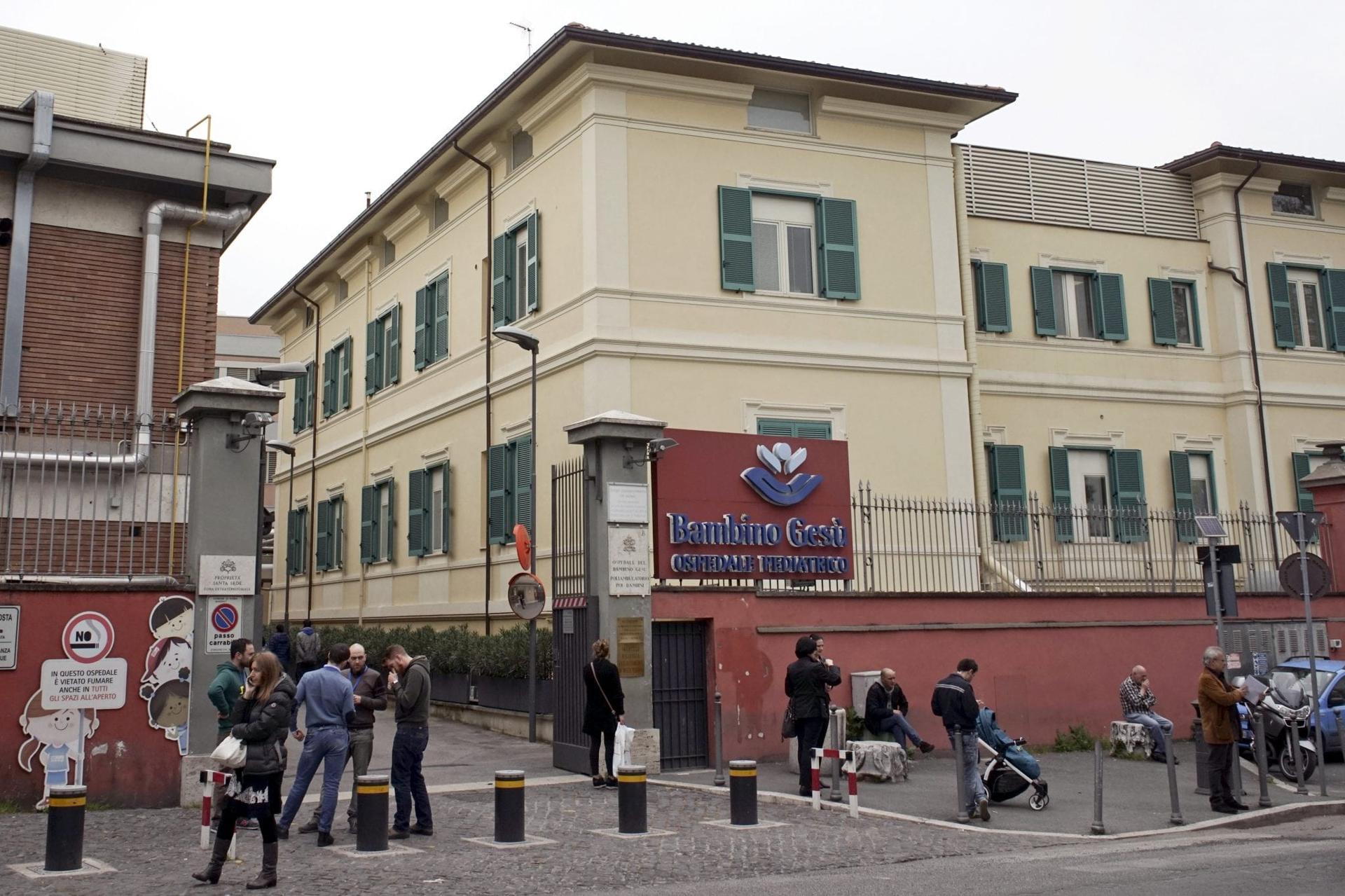ROME — A Vatican trial over $500,000 in donations to the pope’s pediatric hospital that were diverted to renovate a cardinal’s penthouse is reaching its conclusion, with neither the cardinal who benefited nor the contractor who was apparently paid twice for the work facing trial.
Instead, the former president of the Bambino Gesu children’s hospital and his ex-treasurer are accused of misappropriating 422,000 euros from the hospital’s fundraising foundation to overhaul the retirement home of Cardinal Tarcisio Bertone, the Vatican Secretary of State under Pope Benedict XVI.
Prosecutors have asked for a guilty verdict, a three-year prison term and a fine of 5,000 euros ($5,910) for the ex-president, Giuseppe Profiti. They asked to shelve the case against the ex-treasurer, Massimo Spina, for lack of evidence: The trial determined he had no signing power or decision-making authority.
The trial, which began in July and resumes Saturday with the defense’s closing arguments, exposed how Bertone bent Vatican rules to get his retirement apartment in shape for him to move in after Pope Francis was elected in 2013 and named a new secretary of state.
And it laid bare the “opacity, silence and poor management” in handling Vatican assets, prosecutor Roberto Zanotti said in his closing statements. Such lack of financial transparency and accountability has bedeviled the Holy See for centuries, and has been a top concern for Francis’s reform-minded papacy.
The trial also shined a light on “the pope’s hospital,” which was the subject of an Associated Press investigation earlier this year. The AP uncovered a secret 2014 Vatican-authorized probe that found that the hospital’s mission under the Profiti administration had become “more aimed at profit” than patient care.
After retiring in 2013, Bertone was assigned a 400 square meter (4,305 sq. feet), top-floor bachelor pad in the Vatican-owned Palazzo San Carlo, which sits on the edge of the Vatican gardens and offers fabulous views of St. Peter’s Basilica and overlooks the Vatican hotel where Francis lives.
During the trial, Bertone was shown to have personally engineered the unprecedented maneuver to get an old friend, Gianantonio Bandera, to do the renovation. Bertone’s project jumped the queue for Vatican real estate repairs, and avoided the normal external bidding process required for such an expensive overhaul — presumably because he promised to foot the bill himself.
And Bertone did indeed pay some 300,000 euros ($355,000) out of his own pocket. The problem is the hospital foundation also paid Bandera’s firm 422,000 euros for a job that totaled 533,000 euros, including communal repairs to the palazzo’s leaky roof.
The chief engineer of the Vatican’s building maintenance office, Marco Bargellini, testified that Bertone’s August 2013 request for renovations was “unique.” Bargellini said he had never seen a case where a tenant proposed a project with the construction firm already chosen, since the Vatican has a list of contractors who would normally bid for the contract.
Bandera’s firm, Castelli Re, originally estimated the renovation at 616,000 euros — a fee Bargellini said was “excessive” compared to market rates. But he said the Vatican approved it after Bandera offered a 50 percent discount up-front.
In the end, Castelli Re went bankrupt, and the hospital’s 422,000 euros were sent instead to another Bandera company located in Britain, Lg Contractors Ltd. That was presumably the transaction that tripped up the Vatican’s financial regulators, who were called to testify at trial but declined to provide details, citing the need to keep their intelligence-gathering operations secret.
The only hint of a potential kickback from Bandera’s apparent double-billing involved a proposed six-figure “donation” from Bandera to the hospital foundation. Profiti said he “didn’t exclude” that he had sought such a donation, and Spina testified that he tried to get the money out of Bandera. Bandera, however, pleaded financial hardship after his company went bankrupt and never paid up.
Neither Bertone nor Bandera were indicted in the case, though it’s possible prosecutors in the Vatican and Italy now have the evidence they need to mount a case against the builder over the apparent double billing.
At the trial, Bandera testified that he never billed twice for the works, though he acknowledged he was no longer fully in control of the company after it went bankrupt in early 2014.
Bertone has insisted he knew nothing of the hospital’s payment. After the scandal came to light in late 2015, Bertone quickly made a 150,000 euro ($177,300) “donation” to the hospital. He insisted it wasn’t a payback but a gesture of goodwill.
Profiti, for his part, admitted he used foundation money to spruce up Bertone’s flat because he planned to host hospital fundraising soirees there. None were ever held.
Profiti’s replacement as hospital president, Marella Enoc, testified that “it’s not my style to have fundraising dinners in the homes of cardinals or celebrities.”










